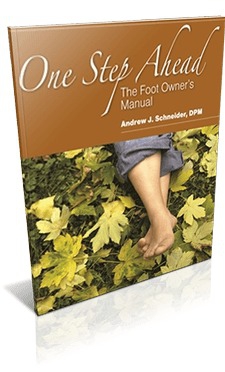Diabetes is a disease that is reaching epidemic portions. If you're fortunate to not be diabetic, you surely have a friend or family member who is. Want to know what's worse? Because of genetic risks, diabetes hits harder at Hispanic or Native American populations like those in Houston, TX,
What does that look like in real life? Something like a horror story: people needing toes, feet, or even entire legs amputated. Or developing cardiovascular complications, as revealed by this study. Sadly, some people don't know they have the disease until they get a foot ulcer that won't heal. In these cases it is often too late. But no one needs to get to that point. As long as you work regularly with me, your podiatrist in Houston, TX, to protect your feet.
Diabetic Foot Care That's Covered by Medicare![Houston diabetic foot specialist uses diabetic shoes to prevent foot ulcers]()
Recently, Medicare and many private insurance companies started covering diabetic shoes and insoles. Now, don't think its from the goodness of their heart. Instead, it's because they know it's cheaper to prevent diabetic foot complications than treat them. But why are diabetic shoes useful in preventing diabetic foot complications? Here's what you need to know.
How Diabetic Shoes Prevent Complications
Diabetes can lead to several conditions that ultimately cause foot complications. Peripheral neuropathy is a deadening of the nerves, causing a profound numbness. This leads to an inability to inability to send an injury to the foot. For many, this injury would be insignificant. But the combination of diabetes and peripheral neuropathy can make a simple issue explode out of control.
Two other issues can magnify the effects of neuropathy: a reduced blood flow to the feet and a compromise of the body's natural defenses. So to look at this practically: everyone knows how irritating it is to have a pebble in your shoe. But if you cannot feel that pebble because of neuropathy? It will keep putting pressure on your foot. Soon, a sore might form. But you wouldn't know that unless you looked at the bottom of your feet.
The same is true of a simple callus beneath the foot. Remember, a callus is a built-up thick skin. It forms because of increased pressure beneath the weight bearing areas of your foot. For most people, it triggers discomfort. But not if you have neuropathy. In that case, the pressure builds and the callus grows until your body can't manage it. Eventually, the skin breaks down and an ulcer forms
Here's where diabetic shoes play a role. They can prevent these pressures from reaching a dangerous level. Built with extra depth, the shoes keep bunion and hammertoe related pressure from becoming problematic. Plus, diabetic shoes have a molded insole. And that redistributes pressure that forms beneath the foot, reducing your risk for a pressure ulcer.
How effective are therapeutic shoes for diabetics? Well, nothing can absolutely prevent a complication from forming. But diabetic shoes significantly reduce your wound risk. On their own, or in combination with other tech for diabetes, these shoes can save feet. And one other accessory I like to recommend is diabetic socks.
Adding Diabetic Socks for Extra Protection
I always say that foot health begins with your socks. And that's even more true when you have diabetes. That's why I often recommend diabetic socks, designed to help reduce disease-related complications.
Remember, when you have diabetes, blood flow to your feet may slow down. But standard treatments like compression socks could put too much pressure on your feet, causing ulcers. Enter diabetic socks, which maximize blood flow without causing pressure.
But wait, there's more. With diabetes, a blister could become a medical emergency. To prevent problems, diabetic socks are designed to prevent rubbing. (Partially because they have no seams. But also because they help absorb sweat.) Also, when they absorb moisture, they keep your feet dry to prevent fungal infections such as athlete's foot. In some cases, the socks could even contain anti-fungal materials for further protection.
Further, diabetic socks often come with built-in padding. This adds to your comfort as you walk. But it also offers extra protection from accidental bumps and scrapes that could cause injuries.
Choosing the Right Socks for Diabetics ![diabetic socks to prevent ulcers]()
These days, you've got lots of choices when it comes to diabetic socks. Go as low as ankle height, or choose a taller sock to protect your legs a little, too.
Most important is fit. Don't choose socks that are too tight, since that could reduce blood flow. Or cause sweating. But don't wear baggy socks, either. These could bunch and rub your feet, causing blisters.
Finally, make sure you choose padded diabetics socks. These give you extra protection from injury. Always look for seamless socks, to reduce pressure and rubbing on your feet. And don't forget to choose socks that wick away your sweat. Again, this will help prevent both blisters and fungal infections. Both of which could lead to dangerous diabetic foot complications. Or even avoidable amputations.
Houston Diabetic Foot Care: Getting the Right Gear
As a podiatrist in Houston, TX, it's my misson to protect your feet from diabetic complications. I have many different ways I do so. First, I suggest you stick to a quarterly schedule of preventative diabetic foot checks in the office. During those appointments, I can check your foot temperature. This helps me spot an ulcer before it forms. So I can keep your foot safe with minimal interventions.
Even if high tech screenings aren't covered by your insurance, I have effective ways to prevent diabetic complications. Can you guess two of my favorite methods? Suggesting diabetic shoes and socks. Especially since they may both be covered by Medicare.
How can we tell if you qualify for this protective diabetic gear? Or if your insurance or Medicare will pick up the cost? Well, it's all very simple. All you have to do is schedule an appointment! In my Houston podiatrist office, I carry several brands and styles of therapeutic shoes. These include Aetrex, Dr. Comfort, Orthofeet and many others. Contact our office to see which shoes fit your needs.






















